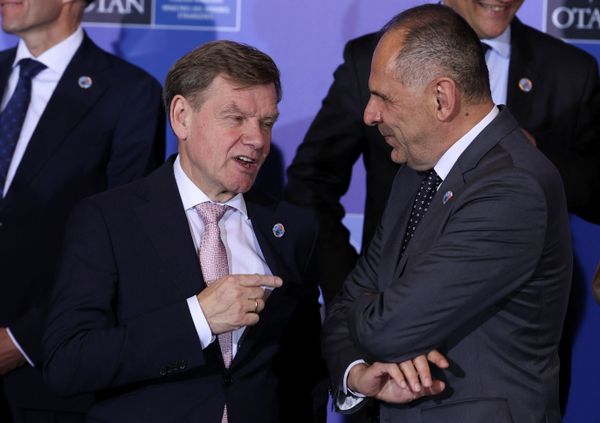ANTALYA, May 15 — Germany has backed United States (US) President Donald Trump's demand to more than double Nato's defence spending target to five per cent of their gross domestic product (GDP), as Washington urged countries to eliminate any "weak links" in the alliance caused by a lack of military investment.
"We are following him (Trump), and we see this as a clear commitment by the United States to Nato's Article 5," Germany's new Foreign Minister Johann Wadephul said, referring to the military alliance's mutual defence pact.
Wadephul, who took office earlier last week as part of a new conservative-led government, was speaking at a meeting of Nato foreign ministers in the Turkish city of Antalya, where defence spending was high on the agenda.
Nato's current defence spending target is two per cent of their GDP — a goal currently met or exceeded by 22 of its 32 members. But many Nato leaders say that target is now too low, as they see Russia as a much greater threat following its 2022 invasion of Ukraine.
With six weeks to go before Nato leaders hold a summit at The Hague, member countries are striving to satisfy Trump's demands, aiming to prevent a recurrence of past threats by the US president to withdraw from the alliance or weaken the US commitment to collective defence.
Nato chief Mark Rutte has proposed a two-pronged approach to meet Trump's five per cent call, suggesting allies spend 3.5 per cent of their GDP on defence and dedicate a further 1.5 per cent to broader security-related issues like infrastructure and cybersecurity.
Thursday's meeting was the first opportunity for foreign ministers to discuss the proposal.
Some countries had previously made clear they saw five per cent of their GDP as an unrealistic target, at least in the near term. At the other end of the spectrum, sthe ome are unhappy with the idea that not all of the five per cent would go on core military spending.
"The target for Nato member states should be five per cent in the future. And we are not talking about anything else but real defence spending, what is defined in Nato rules," Estonian Foreign Minister Margus Tsahkna said in Antalya.
US Secretary of State Marco Rubio used a more emollient tone on Nato than some members of the Trump administration, who have sparked European fears about Washington's commitment to an alliance that relies heavily on US military power.
But he made it clear that the US expected its allies to step up their defence spending.
"Nato has the opportunity to grow even stronger. The alliance...is only as strong as his weakest link and we intend and endeavour to have no weak links in this alliance," Rubio told the press in Antalya before the meeting.
Rutte said he hoped more countries would reach the current Nato target before the summit.
"It now seems that we will get very far in bringing the whole of the alliance to the two per cent, that will build the launching platform for the summit," he said.
— Reuters




